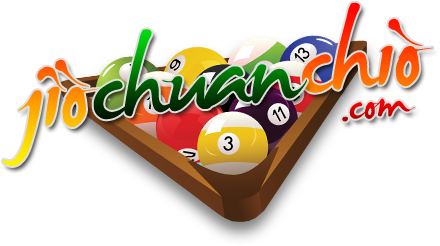Snooker
The object of the game is to score more points than the opponent by potting object balls in a predefined order. At the start of a frame, the balls are positioned as shown and the players take it in turns to hit a shot in a single strike from the tip of the cue, their aim being to pot one of the red balls and score a point. If they do pot at least one red, then it remains in the pocket and they are allowed another shot - this time the aim being to pot one of the colors.
If successful, then they gain the value of the color potted. It is returned to its correct position on the table and they must try to pot another red again. This process continues until they fail to pot the desired ball, at which point their opponent comes back to the table to play the next shot. The game continues in this manner until all the reds are potted and only the 6 colors are left on the table; at that point the aim is then to pot the colors in the order yellow, green, brown, blue, pink, black. When a color is potted in this phase of a frame, it remains off the table. When the final ball is potted, the player with the most points wins.
Points may also be scored in a game when a player's opponent fouls. A foul can occur for numerous reasons, such as hitting a color first when the player was attempting to hit a red, potting the cue ball, or failing to escape from "a snooker" (a situation where the previous player finished their turn leaving the cue ball in a position where the object ball cannot be hit directly). Points gained from a foul vary from a minimum of 4 to a maximum of 7 if the black ball is involved.
One game, from the balls in their starting position until the last ball is potted, is called a frame. A match generally consists of a predefined number of frames and the player who wins the most frames wins the match overall. Most professional matches require a player to win five frames, and are called 'Best of Nine' as that is the maximum possible number of frames. Tournament finals are usually best of 17 or best of 19, while the World Championship uses longer matches - ranging from best of 19 in the qualifiers and the first round proper, up to 35 frames in length (first to 18), and is played over two days.
Professional and competitive amateur matches are officiated by a referee who is the sole judge of fair play. The referee also re-spots the colors on to the table and calls out how many points the player has scored during a break. Professional players usually play the game in a sporting manner, declaring fouls the referee has missed, acknowledging good shots from their opponent, or holding up a hand to apologize for fortunate shots.
